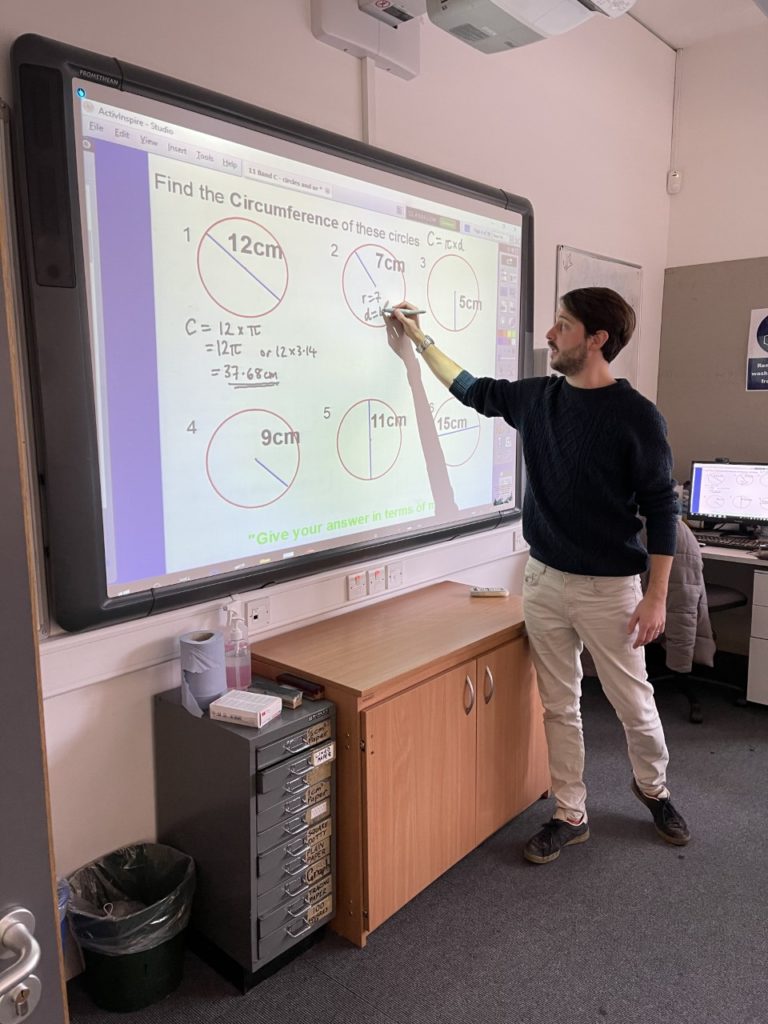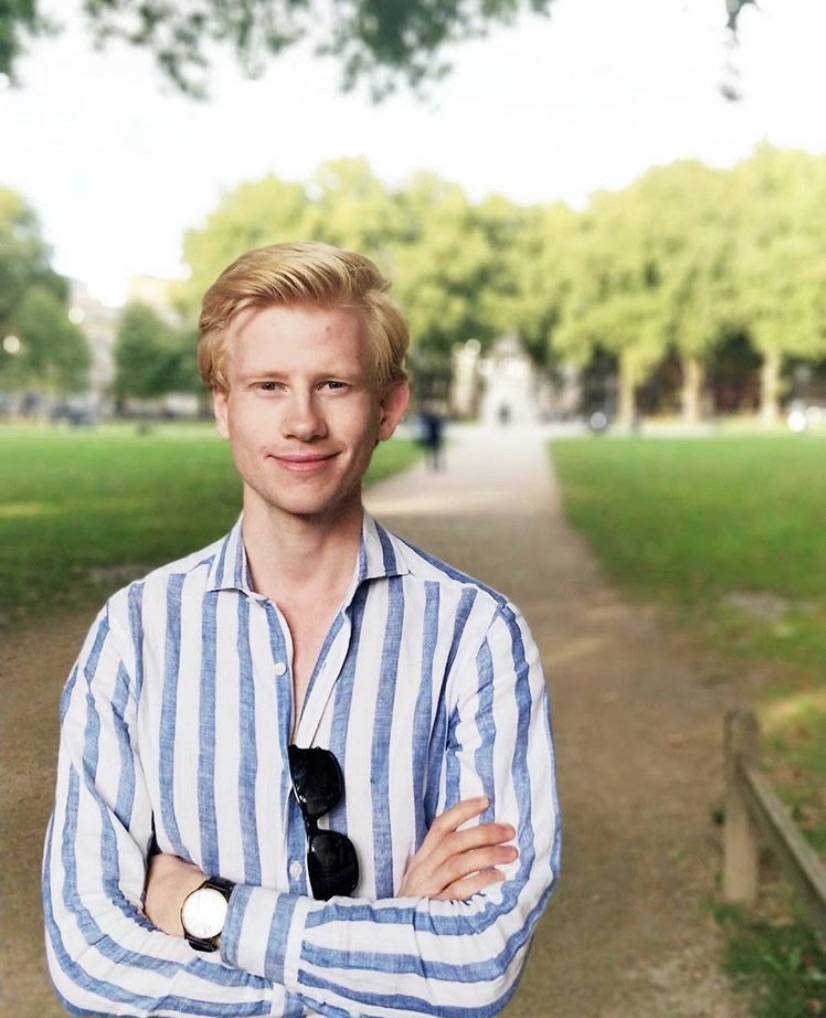MSc Politics of Population, Migration and Ecology student, Sorrel Knott, shares a day-in-the life account of her experience as a full-time postgraduate student at Birkbeck.

You might be wondering what a day in the life of a postgraduate student looks like. To tell you the truth, there is no ‘one-size-fits-all’ answer to that question. Birkbeck has an incredibly diverse student body, bringing together people from a variety of professional backgrounds with varying daily responsibilities. Alongside my studies, I work as a part-time marketing assistant and researcher, as well being a student ambassador for Birkbeck. My part-time professional role is completely remote; as a result, I have been able to cultivate a flexible routine, and evening study at Birkbeck has enabled this. So, here is a day in my life as a full-time postgraduate student.
8am: *Insert irritating iPhone alarm sound effect*
Typically, I wake up at 8am. I’ll stretch, make my bed, and get ready, before attempting my daily Wordle with breakfast. As my job is remote, I don’t commute to work unless I am working as a student ambassador at an event for Birkbeck. Therefore, I’m lucky that I can have a laid-back start to the day.
8.30am: let’s work
I try to get started quickly. I try to get started early, helped along by the to-list that I make every Sunday, that sets out all my tasks for the week. My work includes posting on social media, academic research, compiling bibliographies and writing reports in order to build my company’s platform
12pm: student commute
At 12pm, I’ll have another coffee before packing my bag for university, being sure to include my laptop, chargers, headphones, notepad, pen, water bottle, reusable Tupperware and cutlery, mask, hand sanitiser and a trusty lip balm. I usually catch the bus to Euston Station and walk eight minutes past Gordon Square to reach Birkbeck’s Malet Street campus. If the weather permits, I ride my bike, as there are plenty of bike racks on campus. I tend to avoid the tube to save money, though there are convenient tube stations located at Russell Square and Goodge Street.
1.30pm: arrive in time for some free food on campus
If you arrive before 3pm, you can normally catch the Hare Krishna group handing out cooked food, bread, fruit and, if you are lucky, home-made cake! I will normally pick up lunch from them in my reusable Tupperware before heading to Russell Square or the green space on Birkbeck’s Malet Street campus. There are also other squares to choose from – sometimes I sit in Gordon Square by Birkbeck’s Arts building. I enjoy visiting Birkbeck’s surrounding squares as I think it’s important to visit green space when working on a laptop all day. Plus, I might get lucky and see a cute dog (or six)!
2pm: become a bookworm in Birkbeck’s library
After lunch, I head to the library located in Birkbeck’s Malet Street campus. Usually, I sit down in the group study area, but there are silent study areas too. I watch pre-recorded lectures, complete my pre-reading for my seminar and make notes. I’ll ensure that I understand the topic of the seminar, which might involve watching documentary clips, keeping up with the news and emailing professors with any questions. If I have an assignment, I’ll work on that after my seminar preparation, including my dissertation research. If a friend is on campus, we’ll go for a coffee at Terrace 5 on the fifth floor of Birkbeck’s Malet Street campus. Sometimes, you can get a discounted hot drink through the Twelve app!
6pm: it’s seminar time (normally)
On the evenings where I don’t have a seminar, such as the summer term when postgraduates only work on their dissertations, there might be a Birkbeck event, which I can work at as a student ambassador. During term time, my seminars start at 6pm on Tuesdays, Wednesdays, and Thursdays, and last for around an hour and a half.
In the Department of Politics seminars are very collaborative, involving group discussions surrounding the pre-seminar readings and materials. My intellectual progression has been enriched by the diversity present in the seminar groups, and I have enjoyed having my viewpoints constructively challenged by others. The seminar is also an opportunity to ask your professor to clarify the pre-seminar lecture or readings, as well as an opportunity to discuss a particular topic with a Birkbeck academic.
7.30 – 9pm: let’s go home
If it’s a Tuesday or Wednesday, I finish at 7.30pm. If it’s a Thursday, I finish at 9pm because I have two seminars back-to-back. When you choose your modules in the Politics department, you’ll be able to see the days of the week when a module is taught, as well as having the option to choose between a 6pm or 7.30pm start time for your seminar. This has given me the flexibility to avoid clashes between two modules that are provided on the same day.
Regardless of time, I’ll either catch a bus or cycle home. Sometimes, other members of the class will head to a pub or bar for a post-seminar drink. I don’t drink alcohol, but it’s enjoyable to attend these casual post-seminar events in order to socialise.
The rest of the evening: time to relax
When I arrive home, I’ll make dinner with my partner, take a shower and relax. I think it’s important to dedicate time towards your family, friends and loved ones, as well as taking time to reflect after your day. My partner and I talk about our day, watch a TV series or play video games. I’ll also complete any daily chores, like the washing up.
This is the time to rest and recuperate before another day, as well as checking in with yourself to see if your body is bringing anything to your attention, both physically and mentally. Sometimes, I realise that my body needs more sleep, so I allow myself an extra hour of sleep. Sometimes, I realise that my body needs some alone time, so I might read a book for an hour. I’m lucky that the combined flexibility of my professional role and evening study at Birkbeck enables me to pay attention to my own needs.
So, there you have it!
This is what a typical day in my life looks like; it may not be representative of every student’s time at Birkbeck, but it really works for me. It’s a stable routine that enables me to balance my professional and academic work. Other student’s days might include attending a university-related event, such as a cinema showing in Birkbeck’s Arts building or a guest lecture. Those after even more of a social student life can join a society and attend their meetings and events outside of seminars and work hours. Some students might even visit one of the galleries, museums and exhibits which the Bloomsbury area is famous for. It’s the additional experiences that are available at the university and in the surrounding area that bring a little extra joy to your life!
More information:

















